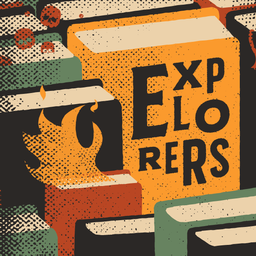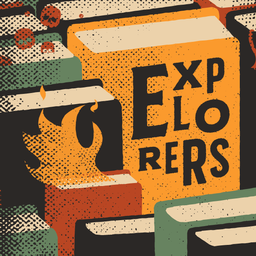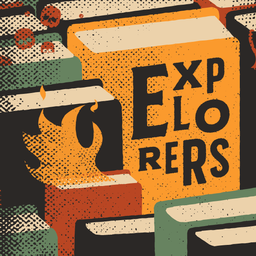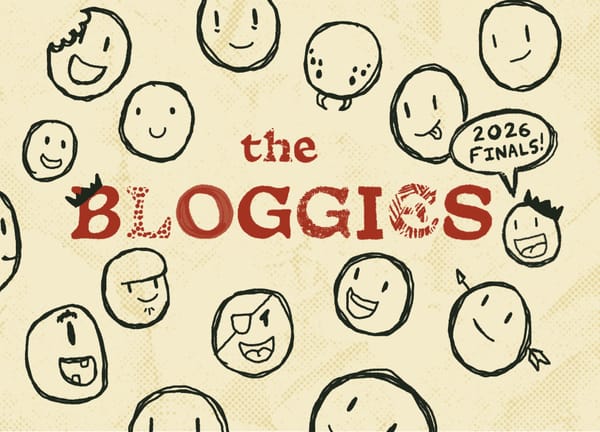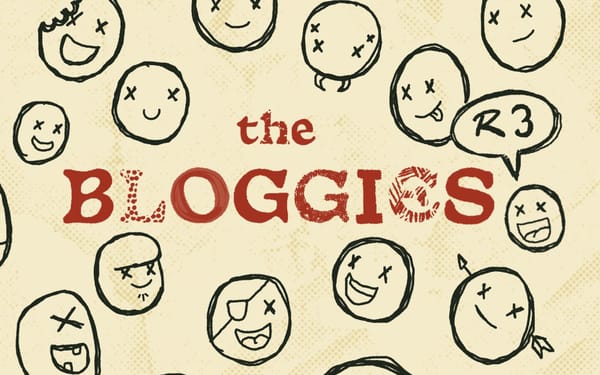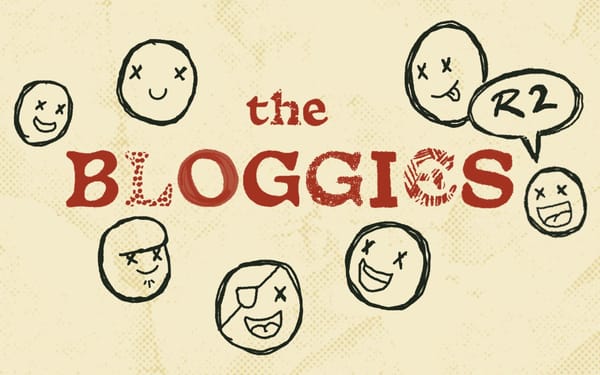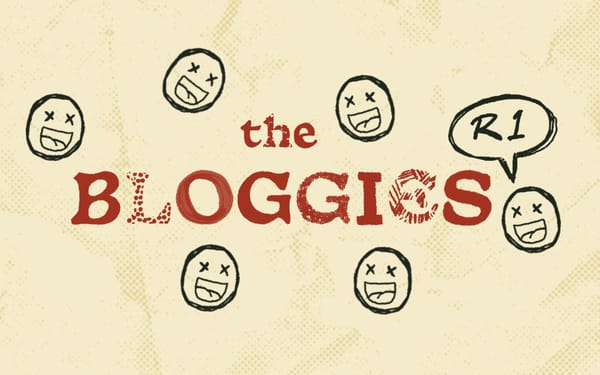Where Do Awards Go Next?
An insider's look into the 2025 Ennie Awards. Part four. What's the point of an rpg award show? And what do we want to see in the future?
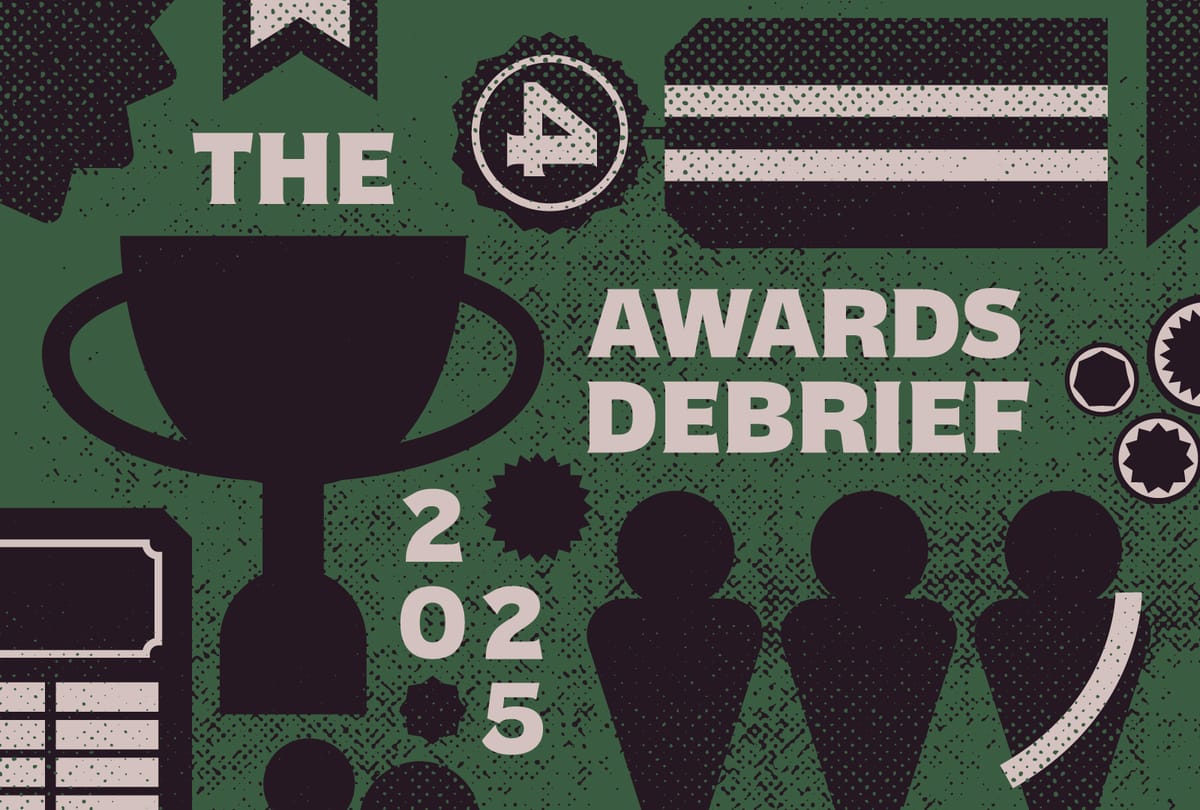
The Awards Debrief: Part 4
This is the end of the road for my indulgent (and cathartic) awards debrief. If you've come this far, thank you. Part 4 is all about rpg award shows as a concept and what I'd like to see in the future. If you've somehow missed a part of this series, you can find the whole collection below.
- Intro: Why am I writing a debrief?
- Part 1: How do the Ennies work?
- Part 2: How are the Ennies designed?
- Part 3: Where do rpg awards go next? ← You are here.
What's the purpose of awards?
Most awards are not an "Industry Award." They're not about influence, craft, or even "art," they're just fun—like a party hat on a pigeon. It's not something anyone needs, but we wouldn't mind having it around, right? Entertainment is what most awards are purpose-built for. They're a big yearly party where fans get together and celebrate some kind of superlative, like Weirdest Games, Prettiest Books, or Most Popular Product.
Cue the soundtrack from Moneyball, I'm about to make a thesis.
Some rpg awards want to be industry awards—the kind that create canon, culture, and focus on craft. The ones that cement games as bestsellers or classics. These rpg awards might look outside and see the big examples everyone knows like the Oscars and The Game Awards. And they might conclude, based on the curtains and graphics, that the best way to be an industry award is to be the biggest party. This is a mistake. It leads coordinators to focus on the wrong things and mismanage their awards. Rpg awards are monkey see, monkey do—miming the product thinking it's the method.
The goal shouldn't be big winners or a big party. Those are a means to an end—a vehicle to produce the thing that matters, which is dialogue. Now, I know how that sounds. At least the other things are something you can point at. What I mean by dialogue, is that it's not the ceremony or winners that make an award meaningful. Most industry is just noise. It's algorithms, marketing, and consumption. To cut through the noise and last, awards need to be relevant, and they need to do that by having a message and being part of their community's dialogue. Most teams run awards like the prize is the show, but the prize isn't the show, it's the audience. And 99.9% of the audience will not be attending the ceremony or tuning in to watch it.
So, how does an award create a relationship with its industry? That's the future.
But why care about future awards?
Regardless of how we feel. Roleplaying games are growing—more games, people, money, politics, and everything in between. Roleplaying games have been bleeding into the real world for decades, too. They're changing video games, television, language, and culture. More and more people are spending their money on games— and slowly (but gradually) living off them.
Awards are inevitable. Without any real money or incentive, roleplaying games birthed several of them. Now the industry has money and incentives, and whether these awards want the responsibility or not, they have some authorship over what happens next.
Like I said in part 1, I have a long history with awards. Large swaths of advertising, branding, and design have been shaped by them. Awards are partly why shows like Mad Men ever came to exist. They chronicled the work and often legitimized them on merits other than sales (if the consultants had their way, the winners would always be banner ads and the stuff you see on mobile games). I know copywriters and art directors who won silver at award shows and got promotions because of it. I've seen art masquerading as commercials win awards. Award-winning commercial directors get funding to make movies. And I've read complaints from consultants and grifters enraged by this "art" and "craft" nonsense.
Sometimes awards get it right, and sometimes they get it wrong. Right now, a lot of awards in design and advertising are legitimizing AI, laundering crypto, and normalizing the ghouls who make them. We have to care about the future of awards, because we have to care about the future.
What can future awards produce?
Awards can have multiple goals and outputs. So don't think of this as an all-inclusive list. Instead, think of it as a starting point. I think if an rpg award wants to be influential, and make a positive impact, it needs to produce at least these three things, which are particularly well-suited for tabletop roleplaying.
- Discovery. I want awards that spotlight new games, play, and people. The winners list is just the start. Give me the judge blurb, show me the excerpts, and give me links to other people talking about the entries. The ceremony shouldn't be the first or last place people see and discover something new.
- Education. Teach the community by showing them. What is good design, writing, and rules? Who are the judges and why do we care? When I was starting as a copywriter and designer, seeing the best in my field, picked by the best in my field, taught me more about my craft and industry. To this day, awards are like a barometer, teaching me who's working and what's resonating with my colleagues.
- Change. There should be some conflict and controversy. An award show that has values and perspective collides with trends and change. If it's a good show, its reaction to these conflicts sets standards and exerts influence through its systemic levers—like banning AI, rendering them invisible, or legitimizing games by giving them an award. Institutions can do a lot to change an industry just by changing or upholding their processes.
3 things to steal from outside rpgs.
Rather than try to explain how other award shows work, I'm going to pull a few highlights I think showcase different approaches to award show organizational design. Some of them are very simple. Others would require complete overhauls.
#1 Some awards are not zero-sum games.
A zero-sum game is one in which one player's win is another player's loss. (My apologies to the economists and theorists raging at this over-simplification.) Most if not all rpg awards are zero-sum games. There's only one gold, one silver, and (interestingly) no bronze. I think this is a bizarre trend in rpg awards. Zero-sum games are inherently antagonistic, pitting very different games against each other for the same prize. Zero-sum awards make representation harder. They flatten candidates into two-dimensional foils. They're wrong for rpgs.
Many design and advertising awards are non-zero-sum awards. Instead, they have multiple bronze, silver, and gold winners in every category. Winning in those awards doesn't mean you "beat" the others, it means you got a certain percentage of the jury panel's approval, survived so many rounds of critique, or were appointed that specific tier based on long, laborious discussions.
Conclusions:
- Traditional zero-sum awards do not accommodate for variety and diversity.
- Zero-sum awards limit the size of an award's spotlight to very few entries.
- Non-zero-sum awards allow for games to be recognized on different merits
- Non-zero-sum awards reduce antagonistic competition
Outside example:
- D&AD. A London-based industry award for designers, writers, and branding experts. It hands out "pencils" for over a dozen different categories. Most pencils correlate with nomination, bronze, silver, and gold, but they also have special pencils for specific categories and distinctions.
#2 Many awards tailor their judge panels.
This is hard to execute if the categories are broad and ill-defined, but a lot of awards try to select judges with experience in the things being judged. This has a number of advantages. One, it adds legitimacy to the process and encourages more trust in the results. Two, it makes working professionals want to submit. Being judged by one's peers is something a lot of people want. Three, it gives the awards all kinds of opportunities to expand the dialogue. In some awards, the jury reveal is part of the fun. It means you get to see more collaboration and even ancillary essays or interviews independent of the actual competition.
The other thing about industry professionals, like layout artists judging layout, is that they tend to notice when something cool or interesting is being done within the craft. It's not a surefire thing—every trade has its dogmas—but specialized juries often recognize innovation and art in the submissions pool.
Conclusions:
- Adds legitimacy and public confidence to the results.
- Provides opportunities for ongoing dialogue and promotions for the awards.
- Encourages more informed, innovative, and bold jury selections.
Outside example:
- The One Show. The One Club for Creativity is massive and hands out awards in a number of different industries, including film and writing. For each of these disciplines, they build jury panels that review one or more categories.
#3 Most award shows have closed voting.
There are a lot of ways to select winners. The one we're most familiar with in this series is the People's Choice Award (the type used by The Ennies and The Crit Awards). It requires judges to create a public ballot of nominees before handing it over to the general public for a vote. There are at least two alternatives to this method, either the judges pick the winners themselves (like in D&AD and The One Show), or the voting is opened to a more limited "prestigious" group.
The Academy Awards is the most famous example of this. It has the Academy membership decide on winners, which is why their membership expansion was big news. (It's also worth mentioning that the Academy is a non-union body in an industry filled with unions. This was deliberate from its inception, and highlights why we should care about how awards occupy our spaces.)
One thing I want to mention about members-only awards, is that it requires an organization. Something that has gotten harder to maintain with new laws, infrastructure, and a lack of market incentives. It's the same dilemma that plagues rpgs and its culture of critique. There are no newspapers, tv outlets, magazines, and unions to make, train, and support a healthy community of professionals.
Conclusions:
- Winners can either be nominated and awarded by judges, or,
- Winners can be nominated by judges and selected by memberships.
- Membership-led awards require healthy organizations and communities
Outside example:
- The Webby Awards. This award show is for all things digital and internet. Their membership, the International Academy of Digital Arts & Sciences, judges the entries. But I include them specifically because they include a People's Choice as well—using the voting experience as a chance to drum up anticipation for the overall results.
3 things rpg awards can change.
I could list 100 changes, but instead I'm going to suggest just three—three load-bearing designs that could avoid the consequences other awards fall victim to (while providing system-based outcomes we want).
#1 Roleplaying awards should specialize.
Restraint is more valuable than ambition when it comes to award shows. The smaller the scope and more focused the subject matter, the more efficient, relevant, and compelling the award show is. (It also make them easier to start and manage.) Broad, generic award shows give up their small cohesive audiences for big dissonant ones. And, as a result, every challenge, decision, and process becomes exponentially harder.
We need fewer awards that want to have a category for everything and be for everyone. It's not fair to the awards, the volunteers, or the public. It also produces generic results. If I could change everything with the snap of my fingers, The Ennies would be game products-only, the Crit Awards would be content-only, and all the other award shows would embark on similar transformations. (If you run one, ask me what I think, I have an opinion on all of them.)
#2 Roleplaying awards should be online-first.
Why do all of the websites look like they were made in 2005? Why does it take days, sometimes months after the ceremony to announce the winners online? And why are the websites so confusing? I would rather rpg awards skipped the ceremony and stream if it meant the other 99.9% of people interested in the awards could find out who won, when to apply, and how it works.
There are infinite opportunities when we think of awards as "digital native" projects, and they all ladder back up to the thesis of today's article. Dialogue, connection, and influence are built on the clarity and messaging websites are exceptionally good at disseminating.
#3 Roleplaying awards should be about people.
Remember, the show and games are just an excuse. The people are the point. If an award show focuses on people, it has no shortage of things to say and do. Awards can host regular interviews and creator spotlights. They can invite people to participate in debates, make commentary on results, and invite critique without shame. If it's people at the center, then it's people all the way down.
Running an award show is a lonely enterprise. Without people, they're unbearable. It doesn't matter if a coordinator is exceptionally talented or hardworking. They need people to stay motivated and find joy in it. For me, judging in the Ennies was awesome because I got to talk and share my passion with other people. The actual submissions would not have been enough. The same can be said for a lot of projects, even this one, Explorers Design. It takes a village to run an award show. And you know what the village really likes seeing in an award show? The village.
A laundry list of possibilities...
- Award Annuals & Quarterlies. Most of the design awards make and produce these and they tend to become collectable as art books and sources of inspiration for other designers.
- Winner Interviews. Hosted by the awards themselves or shared and done with influencer/content-creation partners.
- Judge Interviews. These can range from "What do you look for in an entry?" to being more specifically about the judge in question. If, for example, the awards are inviting working professionals to volunteer, they could promote that judge's work with interviews and show-and-tells.
- Panels & Workshops. The more you read, the more you're going to notice that award shows tend to be mini conventions (or massive conventions). The point is that the people who care about awards often have similar interests and goals. Most awards have an education/professional development component.
- Award Archives. It can be surprisingly difficult to find out who won and judged in previous years. "Award archives" are just content management systems that allow people to browse previous years.
- New Blood Awards. Some awards create a separate category or award for new creators and students, usually with reduced requirements and more resources for development and networking.
- Submission fees. This is probably repugnant to rpg folks, but it's almost universal. Entry fees allow awards to pay people and maintain their processes. It also pays for processing, storing, and evaluating submissions.
- Applicant portals. Most award shows require profiles online for submitting entries, making requests, and accessing resources.
Outside non-rpg awards to check out...
- The One Show. A massive international award for advertising and brand professionals. Tends to have a more American focus. Lots of categories.
- Type Director's Club. A member of the One Club but with a focus on typography. Lots of great inspiration here for book covers and layout.
- D&AD. London's international festival and awards for illustrators, designers, writers, and artists in design and advertising. One of my favorites.
- Communication Arts. A quarterly magazine where each issue is for a different discipline. Every issue has a new jury, winners, and articles.
- Indiecade. A video game award show just for indies. They manage to keep a pretty great focus despite getting a lot of entries every year.
- Print Awards. A show all about awarding creativity in physical media. One of the best awards for finding inspiration on print projects.
- The Webby Awards. A massive (I mean we're talking a silly amount of categories) show for websites, mobile apps, and everything digital.
- Festival of Gaming. Formerly known as the GDC, their panels and lectures are legendary. The YouTube channel is more influential than the awards.
Closing thoughts on the debrief.
Thank you so much for following along with this 4-part series. It was a long and winding journey. Sometimes indulgent, sometimes cathartic, hopefully illuminating. If it isn't clear already, I love award shows. I love them so much, I can't resist critiquing them like roleplaying games. I look forward to seeing how they evolve with our hobby. Maybe for the better.
Do me a favor and share this series whenever people ask about The Ennie Awards or any rpg award show ever again. My hope is that it informs and steers annual thoughts and feelings toward more fruitful areas of discussion. And if you're running an rpg award show, and want a former judge's opinion—don't hesitate to reach out. I'm always thinking about them.
Until next time, I'll keep exploring.
Other posts in the series...
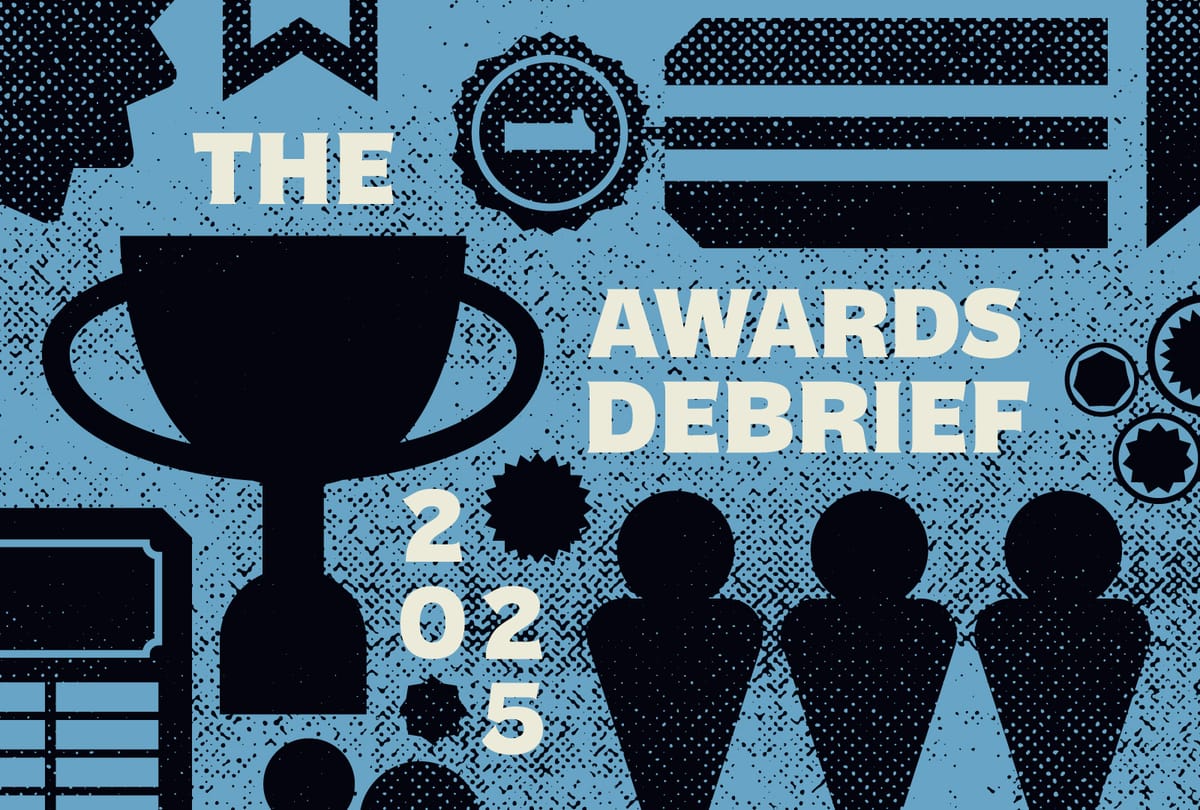
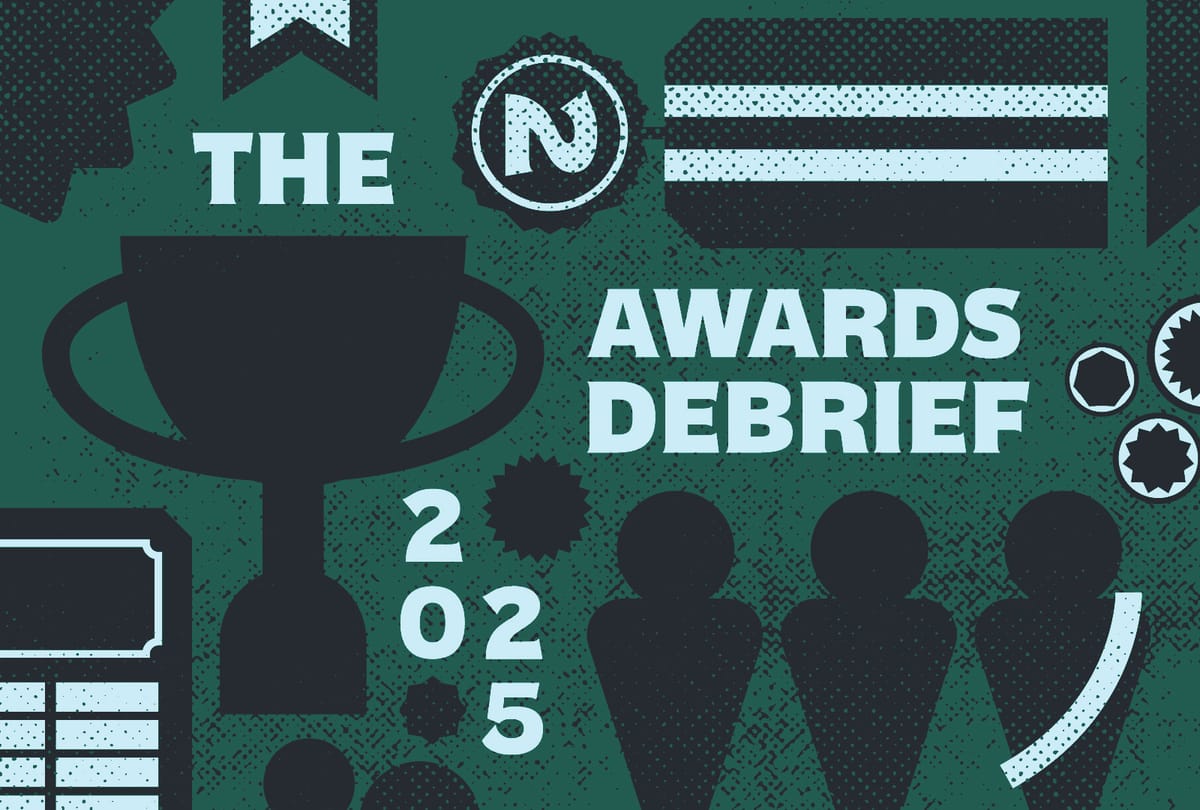
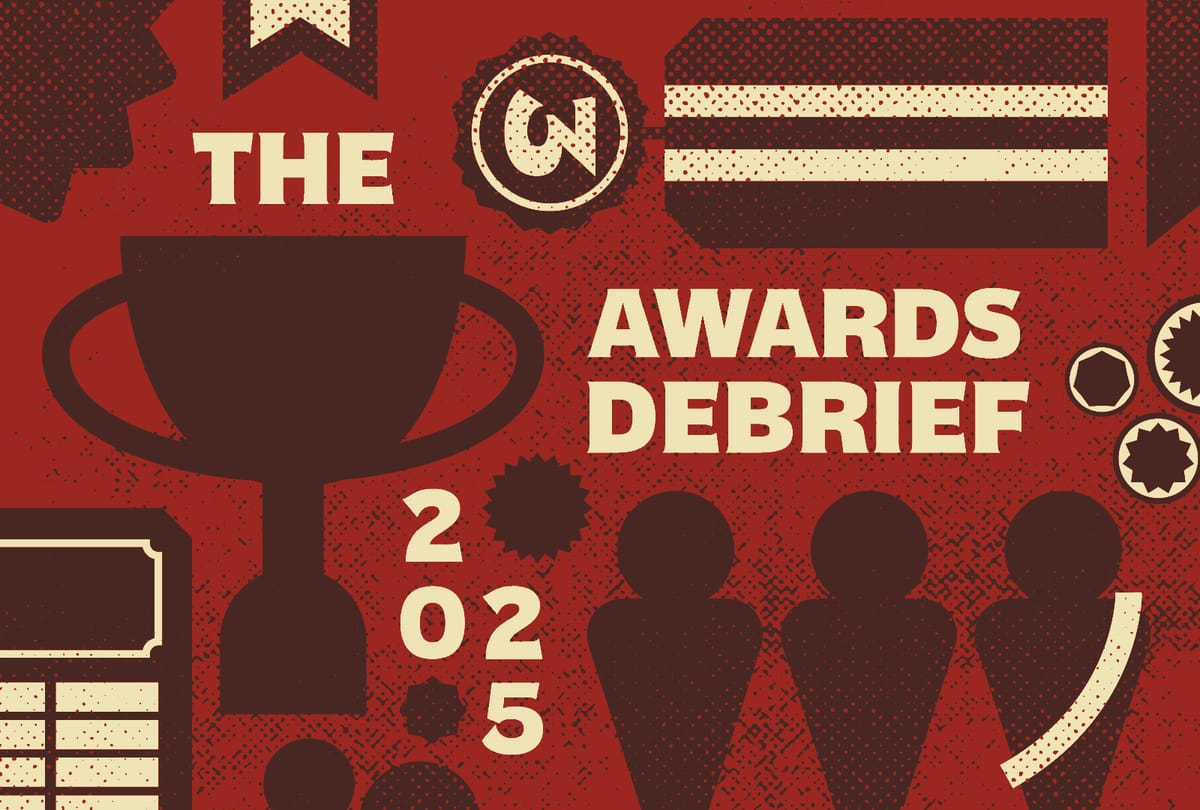
Explorers Design is a production of Clayton Notestine. If you liked this article, please consider liking, sharing, and subscribing. Members who pay $5/month also get access to additional tools, templates, and inspiration.


